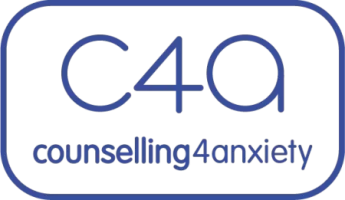Post Traumatic Stress Disorder or PTSD is a disorder that is caused by internal bodily and emotional reactions to stress situations which seem overwhelming for an individual. The threshold of what seems 'overwhelming' is different for each person and depends on a range of factors, including their biochemical make-up, their experiential history, their genetics and how they interpret stress. For some, stress is energising and seen through the lens of having some benefits for performance, whilst for others it is anxiety inducing and with corresponding negative impacts on their health and well-being. For those negatively affected by stress, it has the ability to narrow and limit the mental bandwith and the focus of those affected, creating the possibility of ruminatory thoughts, a sharpened and heightened focus on catastrophic thoughts and hyper-accelerated thoughts about the future or the past that focus on danger and risk. Allied to this comes a disconnection or detachment with the self and a focus on mentalisation over time. In other words, people 'withdraw' into their heads.
I have worked with clients who have had PTSD reactions because of accidents, the death of close family members, the loss of their careers and also from negative press articles being written about them. It is the sense of profound shock and loss, the sense of disconnection with something that is important in their lives, followed by the associated catastrophic thoughts because of the shock event which echo in PTSD related events.
So, for example, some people who have had negative press stories about them firstly ruminate about the story and then can go into a state of detachment and 'shut down', or they can become hyper-anxious and intensely worried about their future, their reputations, income and the way that they will be perceived. The brain enters a stage of trying to reflect on the risk, though given the overwhelming nature of the shock, people entering this stage of shock feel a sense of narrow focus on the catastrophe ahead, rather than being able to step back and assess the reality of the risk to them. With this narrowing of focus, comes the 'overwhelm', the feeling and sense that what is happening to them is insurmountable.
Take the example of someone waking up to find a major news story breaking about them. They may enter into three potential states, the 'fight, flight or freeze' reactions. In other words they can go into a state of detachment and just sit for hours or lie down. This can be associated with wanting to sleep and with the desire to stay in bed in order to detach oneself from what has happened. Other individuals may become angry, energised with adrenaline and stress hormones and react to the story with some form of action. Others may seek to 'pigeon-hole' what is taking place, that they don't really want to address it and that they find other tasks to do, minimising its impacts. Either way, feelings of overwhelm, catastrophic and 'black and white' thinking do creep in and slowly deplete the body's capacity to sustain itself during this crisis, which further adds to the cycle of negative and catastrophic thinking.
It is therefore essential at times like this to undertake simple activities like walking, breathing exercises, the use of critical thinking and in realising that the body may be reverting to the patterns I have highlighted. It is also important to carry out an activity that can reduce the stress hormones and the adrenaline that becomes raised within the body and to keep connections with loved ones. We must not underestimate how important personal connections are at this time and how much these can support the rebalancing of our sympathetic nervous system that goes into overdrive when there are traumatising situations that affect us. Additionally, cold water therapy has become a form of therapy that many say helps them to overcome PTSD over time and it helps in activating the parasympathetic nervous system. This is the body's brake system on many organs in the nervous system.
It is important for people who have suffered such traumatic incidents to seek therapeutic help and assistance and to be able to work through these high stress events. This allows them to reflect and to introduce alternative behaviour patterns that can disrupt PTSD symptoms and allow them to feel that they are resilient and able to cope. This is absolutely key to the healing process.

